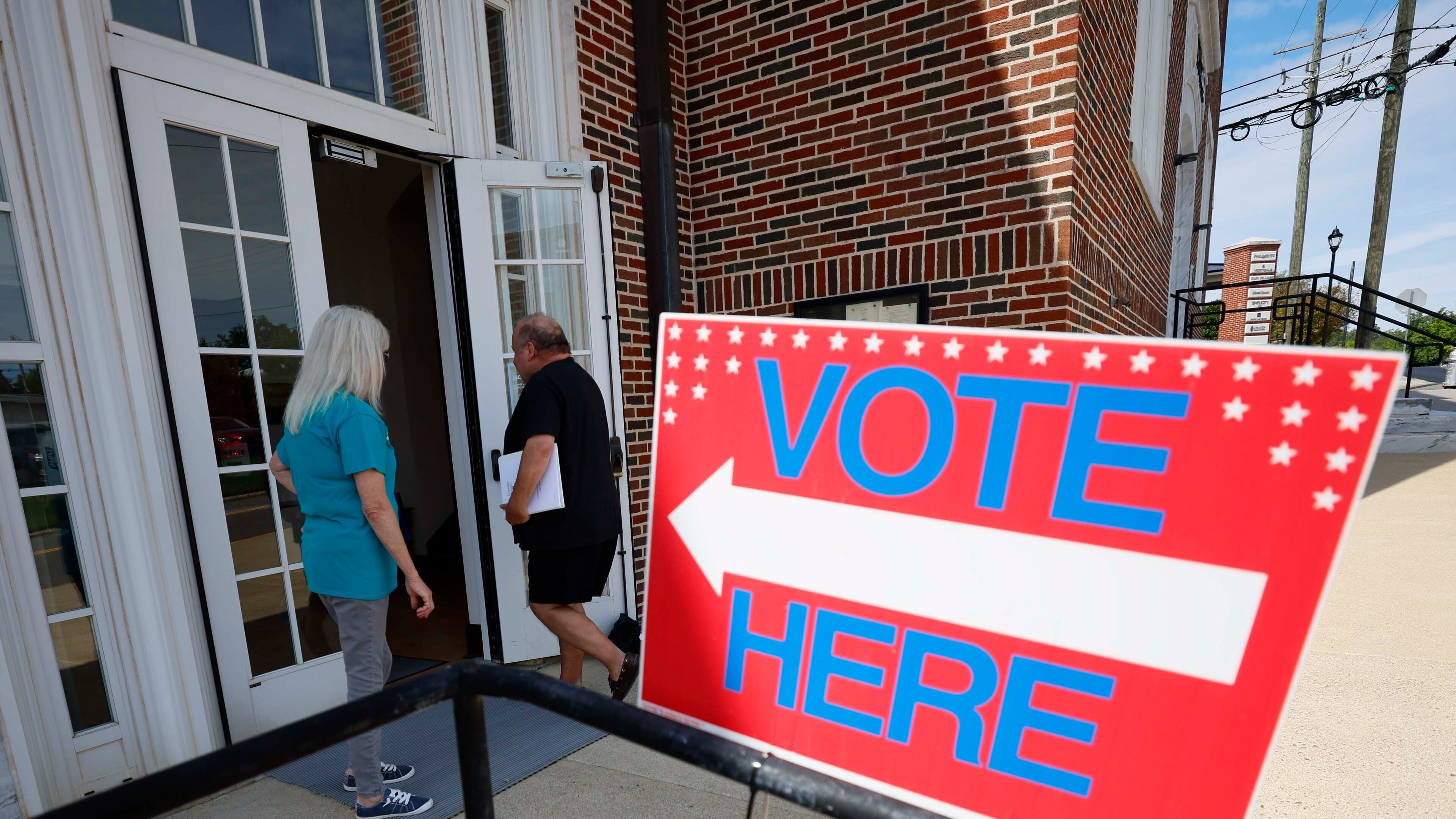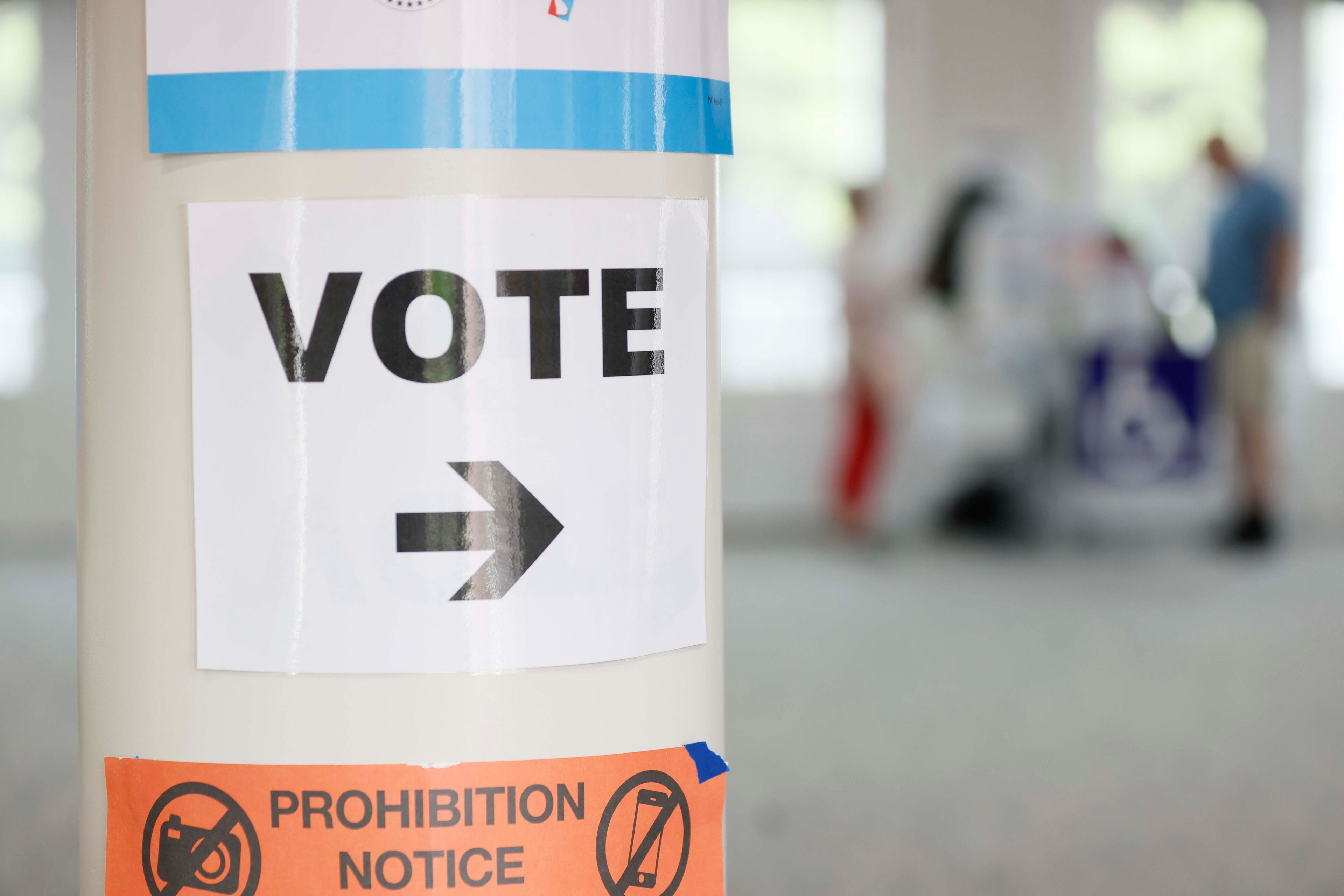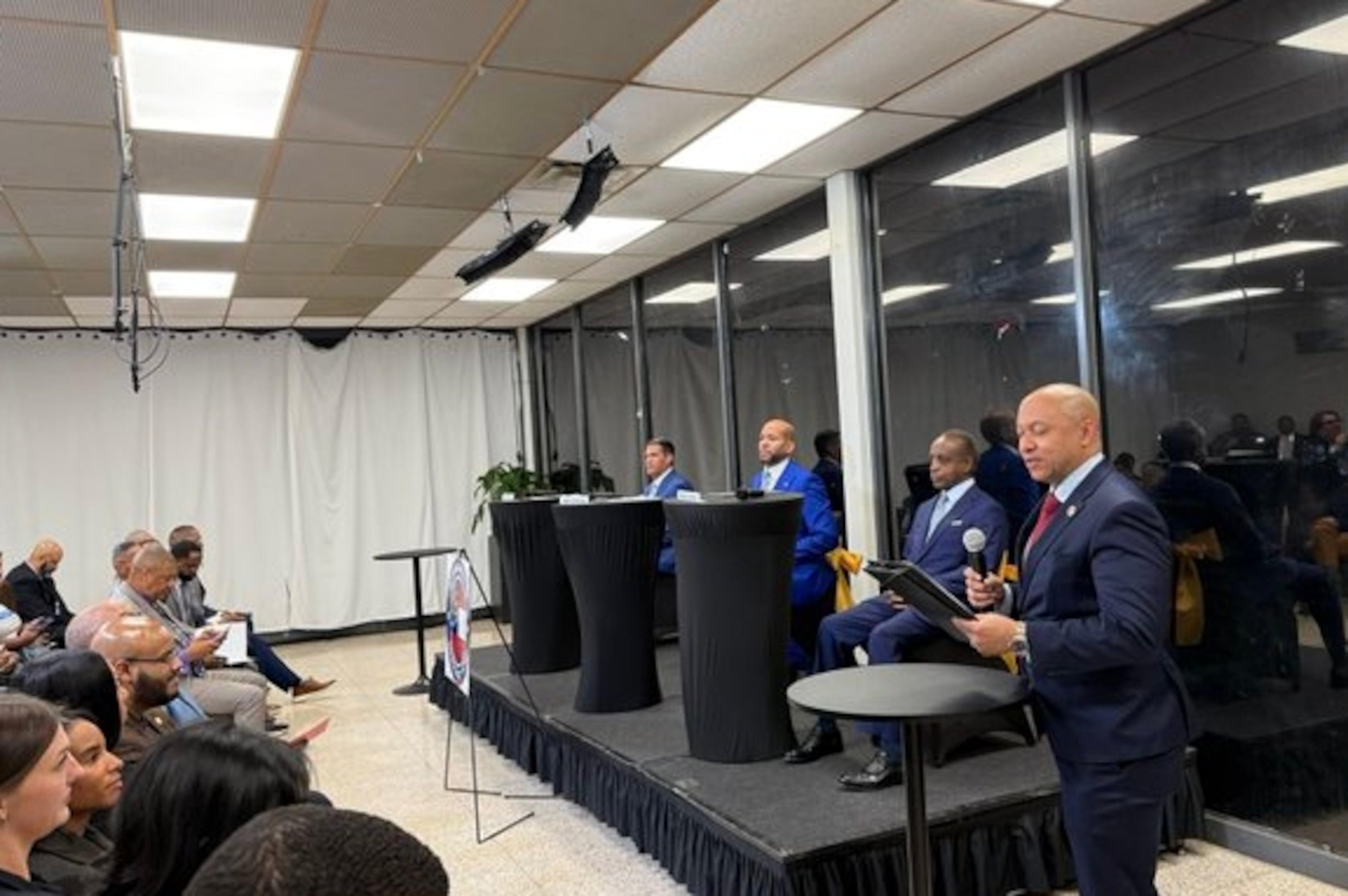Democrat’s showing in state Senate election galvanizes both parties

As officials finalize the results from a special election in Cherokee and Fulton counties Tuesday, Democrats have been energized by what they see as a promising showing in a deep-red district while Republicans are settling which candidate will move forward to a Sept. 23 runoff.
Jason Dickerson, president of a private investment company, appears to have slipped past fellow Republican Steven West by just 65 votes to advance to the Senate District 21 runoff, but the margin is within the state’s threshold for a candidate to request a recount.
The secretary of state’s office said it has not yet received a request for a recount from West, a former Cherokee commissioner. Results from the race will be finalized by Tuesday, and West has two days after that to request a recount.
West and Dickerson have not responded to requests for comment from The Atlanta Journal-Constitution.
Debra Shigley, the lone Democrat in a seven-candidate race, advanced to the runoff by capturing about 40% of the vote, improving upon the Democratic candidate who ran in November by 10 percentage points. In 2020 and 2022, the seat went uncontested by a Democrat.
“We knew it was possible. We’ve run the numbers. We know which way north Fulton is trending,” said Dontaye Carter, chair of the North Fulton County Democrats. “Every time we push it further, we’re showing folks that we can win.”
Carter said Shigley, who is Black and Jewish, connects with voters across racial and class lines. A graduate of Harvard and Georgia State University, she is a former attorney and journalist who is raising her five children in Alpharetta.
“It just speaks to what she’s able to bring to the table and the hope that so many of us see in this moment right now,” he said.

Democrats are eager to frame the contest as a referendum on Trump and a showcase for their midterm efforts. But special elections, especially in off years, can be unpredictable — runoffs, even more so. Turnout was low Tuesday, with 21,433 votes cast, representing about 13.2% of the voters registered in the district.
And because it was an open election, meaning there was no primary to qualify, Shigley benefited from the Republican vote being split among six candidates.
For Democrats, the spotlight on the Senate District 21 race also underscores a political reality: With redistricting cementing a GOP advantage under the Gold Dome, the party must push deeper into metro Atlanta’s exurbs to chip away at Republican control of the Legislature.
Both parties are preparing major mobilization drives for one of the last political tests before next year’s midterm, when Democratic U.S. Sen. Jon Ossoff’s seat and the Governor’s Mansion will top the ballot.
“We will be working with Cherokee County, and we’ll put our full weight behind that (Senate District 21) race. The Republican can win,” said Stephanie Endres, chair of the Fulton County GOP.
Georgia GOP Chair Josh McKoon said he’s working with local activists to “make sure our voters turn out in force.”

Democrats are eyeing a statement win in GOP-friendly territory that could boost their momentum.
There is precedent. In Iowa, Democrats have flipped two Republican-held state Senate seats this year in special elections, each in districts Trump easily won in November.
Georgia has seen its share of special-election surprises, too.
In 2015, for instance, Democrat Taylor Bennett’s special election victory in a Brookhaven-based district was short-lived — he lost a general election battle a year later — but it foreshadowed a broader suburban shift toward Democrats.
That same year, Republican JaNice VanNess flipped a Democratic-held seat in deep-blue south metro Atlanta. But she lost that seat a year later. She won a Rockdale County Commission post last year running as a Democrat.




